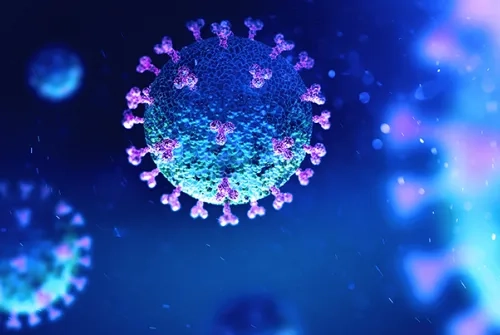Alo Yeditepe
Alo Yeditepe
It Is Necessary to Try to Be Healthy in order to Be Protected
Coronavirus is perceived as a new virus, but it has been known by the medical community for years that it is a virus that causes the common cold in the winter months and is very common after the sniffles. Emphasizing that coronavirus is not a human virus like influenza, Yeditepe University Koşuyolu Hospital Infectious Diseases and Clinical Microbiology Specialist Prof. Dr. Meral Sönmezoğlu made the following statement:
“Like bird flu in 1997 and swine flu in 2009, the new coronavirus called 2019-nCoV is seen in a wide variety of animal species such as camels, bats, cats, and snakes. Since December 2019, we have seen that it can be transmitted from animals to humans, and transmission continues between humans.”
The new coronavirus is very similar to the SARS coronavirus seen in 2003. SARS-CoV also emerged in Asian countries, and travel were stopped like the current pandemic. Emphasizing that the total number of patients is higher in SARS CoV, but the mortality rate is lower, Prof. Dr. Meral Sönmezoğlu continued to state that the reason for fear and panic in 2019-nCoV is due to the higher numbers in terms of loss of life.”
These viruses bind to the lower respiratory tract, that is, the lungs, through a receptor called "angiotensin converting enzyme". Compared to other parts of the world, the density of these receptors is much higher in Chinese society.
Prof. Dr. Meral Sönmezoğlu said, “We should take our precautions at the highest level. First of all, it is necessary not to travel abroad as much as possible, especially to East Asia. It is necessary not to be at International Airports, if possible, but not to come into close contact with people, such as giving kisses or hugging, even if it is mandatory. Elderly people over the age of 80 should stay away from crowded environments such as shopping malls, airports, and bus stations. People who have contact with a foreign person, especially a Chinese or Asian person, must be under surveillance and quarantined for 14 days. People in risky groups, such as the elderly people or chemotherapy patients, who enter very crowded environments, must wear protective masks.”
It Is Necessary to Try to Be Healthy in order to Be Protected
The only defense mechanism that prevents people from getting sick is the immune system. Genetics is an important risk factor for the immune system, but a sedentary lifestyle, alcohol, smoking, not eating a balanced diet, and not going into the open air frequently are the factors that collapse the immune system. Prof. Dr. Meral Sönmezoğlu stated that in such a case, the simplest viruses can make us seriously ill and continued as follows:
“Such a person will catch the coronavirus very easily when he/she encounters it, and what needs to be done is to try to be healthy, eat well, spend time in the open air, control stress, sleep in a quality way, consume plenty of fluids and wash hands when coming from outside. When these are taken into consideration, it is possible to be protected from many infections, including the coronavirus.”
Press Coverage: haberler.com | sondakika.com | gazetevatan.com | timeturk.com | star.com
About
Faculty and Year of Graduation:
Medical Faculty of Ankara University, 1984
”
See Also
- What is Hepatitis B? What are its symptoms? How is it Transmitted?
- What is HMPV Virus? HMPV Symptoms and Ways of Transmission
- Why Is the Flu Lasting Longer This Year?
- What Precautions Should Be Taken Against the Cold Epidemic?
- Don't Be Late Fighting Against Diseases
- Antibiotics Kill Beneficial Bacteria, Not Viruses
- What is Hepatitis? What are the Symptoms and Treatment Methods?
- Symptoms and Treatment of Tick Bites
- Summer Infections
- Precautions Must Be Taken Against Loss of Life Due To Infection in Thalassemia
- Information on H1N1 (Swine Flu)
- Summer is Coming... Beware of food poisoning!
- Our Taboos Affect the Increase in the Number of HIV-Positive Cases in Turkey
- Strep A Symptoms and Treatment
- Do Not Put a Cigarette Butt or Pour Olive Oil or Liquid Soap on the Tick
- Reheat the Food You Cooked Only Once!
- HIV Can Be Hidden for 10 Years without Any Symptoms!
- 290 Million People Live Without Knowing They Have Hepatitis
- Things to Consider When Touching Meat at Eid
- What Is Anthrax Disease?
- The Way to Fight AIDS is to Raise Awareness First
- Still Not Too Late For Flu Vaccine
- What is Rhinovirus?
- Fighting with Thalassemia: Meral Yılmaz
- Thalassemia Spreads from the Mediterranean to the Whole of Europe with Migration!
- Early Treatment of Crimean Congo Hemorrhagic Fever is Vital
- Approximately 3 Million Patients Need Blood Transfusions Every Year in Turkey
- When to Get the Flu Vaccine
- Antibiotics Account For 14% of Prescription Costs
- West Nile Virus Replaces Malaria
- A New Flu Outbreak is Expected Every 10 Years
- 63% of Vector-Borne Diseases are Caused by Lyme Disease
- Experts Warn About Flu Risk
- Mosquito Infection Risk
- Why aren’t Antibiotics Working Any More?
- The World Raises an “Alarm” on Antibiotic Resistance!
- What is COVID-19?
- The Mask Requirement was Removed and the Importance of Social Distance Increased!
- How to Prevent COVID-19 in School-Going Children
- WHO (World Health Organization) Warns for Antibiotic Resistance!
- Who Is Threatened by Monkeypox?
- Ways to Prevent Coronavirus
- Swine Flu / H1N1
- Life Returns to Normal with Caution
- What is Monkeypox Virus? What Are the Symptoms of the Monkeypox Virus?
- What is Lyme Disease?
- How to Tell if You Have a Mild Coronavirus?
- Pay Attention to These Rules for COVID-19
- Hand Sanitizer Usage Guide
- The Priority Rule for the Protection from Summer Infections is Hygiene
Alo Yeditepe




